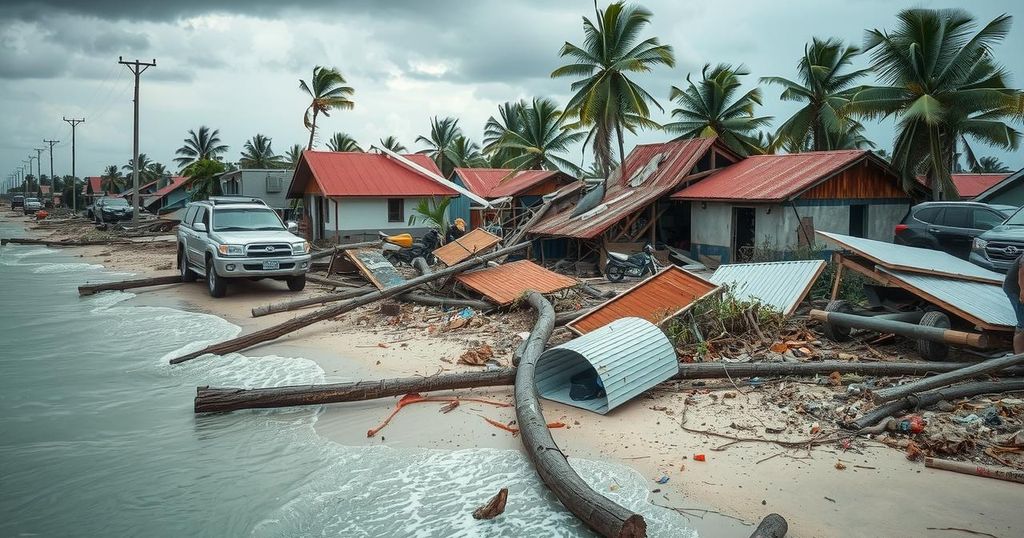Devastating Impact of Cyclone Chido in Northern Mozambique
Cyclone Chido struck northern Mozambique, resulting in 120 deaths, 868 injuries, and affecting over 680,000 people. The cyclone caused severe destruction, damaging over 150,000 homes and leading to multiple emergencies in key sectors such as education and healthcare. Shelters have been set up for the displaced, as the country grapples with the aftermath and seeks urgent support from international agencies to aid affected communities.
The aftermath of Cyclone Chido in northern Mozambique has proven devastating, resulting in a death toll of 120 individuals, with 868 reported injuries and over 680,000 individuals affected. This information was issued by the national disaster relief agency, underscoring the extensive impact of the cyclone on the region. Particularly, Cabo Delgado, Nampula, and Niassa provinces have experienced severe destruction due to the relentless heavy rains, storms, and flooding associated with the cyclone.
Cyclone Chido struck land on December 15, unleashing torrential downpours and fierce storms that have left a significant mark on local infrastructures. Recent estimates indicate that approximately 622,610 persons, equivalent to more than 123,000 families, have been affected; the cyclone resulted in the damage or destruction of over 140,000 homes. Furthermore, around 150,000 residential structures, 250 educational institutions, 89 public buildings, and 52 healthcare facilities sustained damage.
In light of the extensive displacement caused by the cyclone, the Mozambican government has instituted two emergency shelters that are currently providing refuge to 1,349 displaced individuals. The National Institute for Disaster Risk Management and Reduction has highlighted the profound ramifications of Cyclone Chido on educational and healthcare services, underscoring the urgent need for robust planning to bolster resilience against climate-induced calamities.
Originating as a tropical depression on December 5 over the southwestern Indian Ocean, Cyclone Chido previously caused notable damage in Mayotte before making landfall in Mozambique. Characterizing as a weather system with sustained winds of 61 km/h or less initially, it escalated into a powerful cyclone as wind speeds exceeded this threshold, resulting in catastrophic consequences in its wake.
Cyclones are intense weather systems burdened with high wind speeds that can lead to catastrophic consequences upon landfall, particularly in vulnerable regions. Mozambique, situated along the Indian Ocean coastline, frequently faces the brunt of violent storms, making it acutely susceptible to natural disasters. With climate change intensifying weather patterns globally, communities in northern Mozambique were particularly unprepared for the fury of Cyclone Chido, which further exemplifies the urgent need for sustainable planning and infrastructure resilience.
In conclusion, Cyclone Chido has wreaked havoc in northern Mozambique, claiming lives and impacting hundreds of thousands. The destruction of homes, schools, and healthcare facilities highlights the dire situation facing the affected provinces. As the government implements emergency measures, the international community must respond to the urgent needs of those impacted, fostering resilience against similar future climatic events.
Original Source: english.mathrubhumi.com




Post Comment